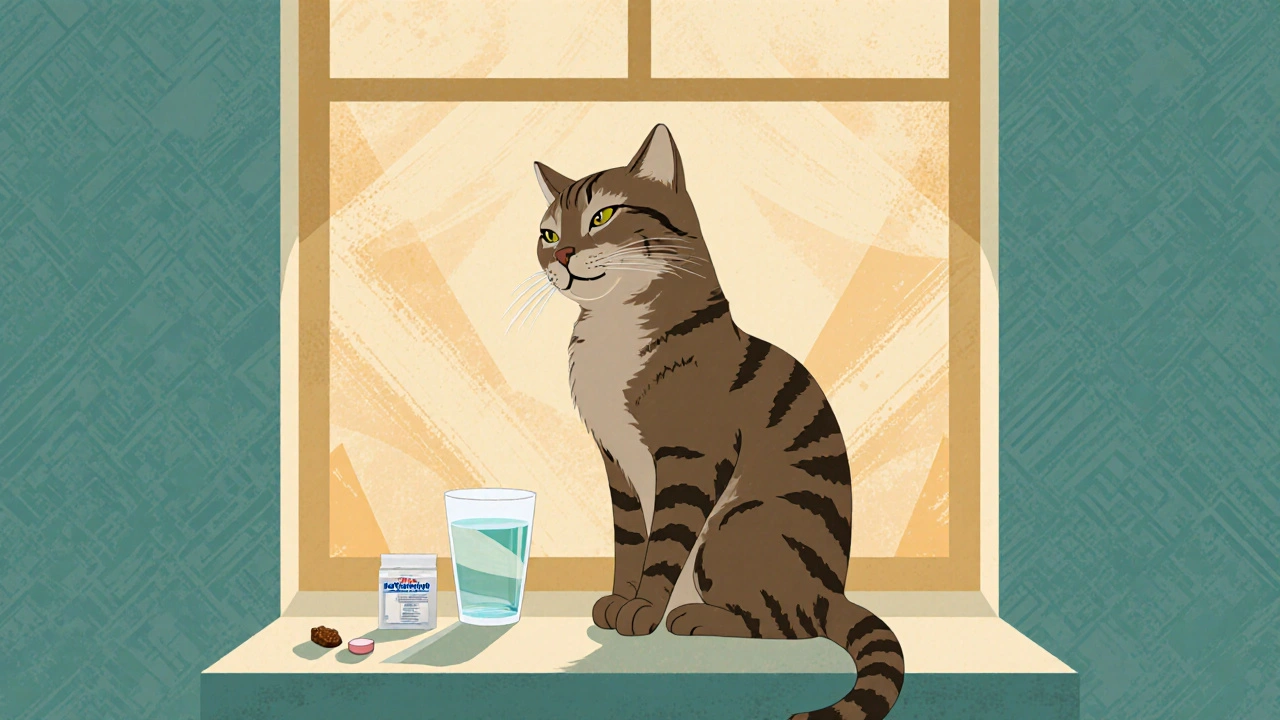Methimazole for Cats: Dosage, Side Effects, and Alternatives
When a cat starts losing weight despite eating a lot, acting restless, or vomiting often, it might have methimazole for cats, a medication used to treat overactive thyroid in felines. Also known as Felimazole, it’s one of the most common ways vets manage feline hyperthyroidism, a condition where the thyroid gland produces too much hormone, leading to fast metabolism and weight loss. This isn’t a cure—but it’s a reliable, daily treatment that helps cats live longer, calmer lives.
Methimazole works by blocking the thyroid from making excess hormone. It’s usually given as a pill or liquid, sometimes as a gel rubbed on the inside of the ear. Most cats take it twice a day at first, then often switch to once daily after their levels stabilize. Vets check bloodwork every few weeks to adjust the dose. Too little won’t help; too much can make your cat sick. Common side effects include vomiting, loss of appetite, and tiredness—usually mild and short-lived. But in rare cases, it can cause liver problems, low white blood cell counts, or skin rashes. If your cat stops eating or seems unusually lethargic after starting methimazole, call your vet right away.
Not every cat does well on methimazole. Some throw up the pill, others hate the ear gel. That’s why many owners explore alternatives like cat thyroid medication, including radioactive iodine therapy or surgical removal of the thyroid gland. Radioactive iodine is a one-time treatment that cures the condition without drugs, but it’s expensive and requires hospitalization. Surgery works too, but carries risks, especially in older cats. Diet changes with iodine-restricted food can help, but only if the cat eats nothing else—no treats, no outdoor snacks. Each option has trade-offs in cost, convenience, and long-term health. The right choice depends on your cat’s age, other health issues, and your ability to give daily meds.
What you’ll find below are real, detailed posts from pet owners and vets who’ve walked this path. You’ll see how methimazole affects different cats, what signs to watch for, how to handle missed doses, and what other treatments worked when methimazole didn’t. No fluff. Just straight talk from people who’ve been there.

Methimazole for Cats: Treating Feline Hyperthyroidism
Methimazole is the most common treatment for feline hyperthyroidism, helping cats live longer with fewer symptoms. Learn how it works, side effects, dosing, and how to give it to your cat safely.
